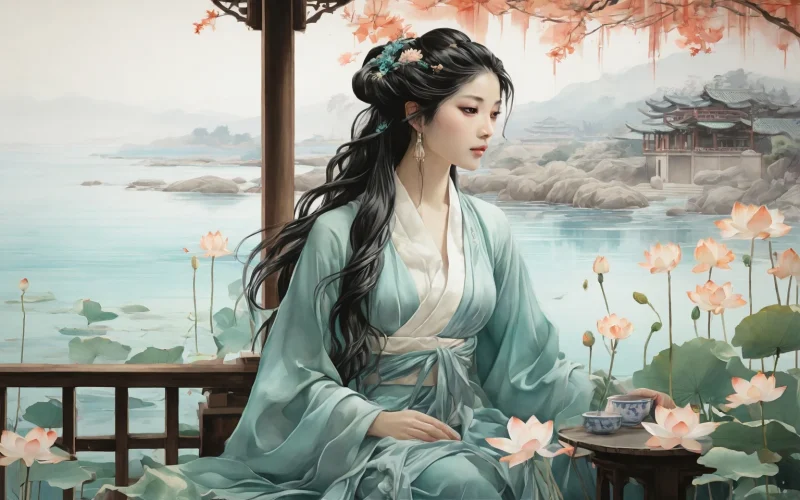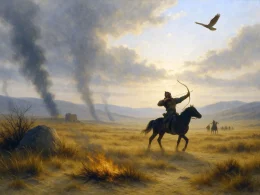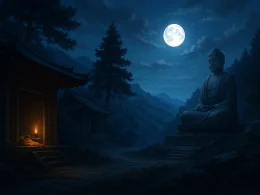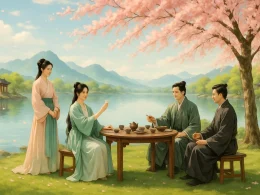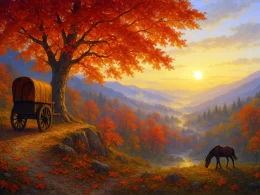Wildflowers graffiti the torrent's chaos,
Banners cast ghost-votes on the swaying bridge.
Absence carves the essential viewing locus—
How dare clouds hide when earth begs passage?
Original Poem
「奉和滁州九咏九首 · 归云洞」
曾巩
野草山花夹乱流,桥边旌旆影悠悠。
即应要地无人见,可忍开时不出游。
Interpretation
Composed during Zeng Gong's tenure as prefect of Chuzhou, this poem depicts the scenic Returning Cloud Cave (归云洞), expressing the poet's appreciation for natural landscapes and his transcendent, reclusive spirit. Located between the Yangtze and Huai Rivers, Chuzhou's serene and beautiful scenery often served as inspiration for Song literati like Ouyang Xiu and Zeng Gong. The poem's light and natural style reflects Zeng's characteristic grace and approachability, using scenery to convey lofty ideals.
First Couplet: "野草山花夹乱流,桥边旌旆影悠悠。"
Yě cǎo shān huā jiá luàn liú, qiáo biān jīng pèi yǐng yōu yōu.
Wild grasses and mountain flowers flank the turbulent stream; / By the bridge, banners cast leisurely reflections that gleam.
This couplet portrays the natural scenery around Returning Cloud Cave, combining movement and stillness with rich colors. The untamed beauty of grasses, flowers, and rushing water is juxtaposed with the poetic, almost dreamy "leisurely" sway of banner shadows, adding a touch of human presence to the wild landscape.
Second Couplet: "即应要地无人见,可忍开时不出游。"
Jí yīng yào dì wú rén jiàn, kě rěn kāi shí bù chū yóu.
Such a sublime spot should draw crowds, yet few appear; / How can one resist venturing out when blossoms are near?
Transitioning from scenery to emotion, the second couplet employs a questioning tone to lament the lack of visitors to this beautiful place. It also reveals the poet's deep love for nature's pleasures and his contentment in solitary immersion. The rhetorical question underscores Zeng's belief that one should not miss the opportunity to enjoy such fleeting natural beauty.
Holistic Appreciation
This poem depicts the splendid spring scenery around Guiyun Cave (归云洞), where the poet masterfully blends wild grass, mountain flowers, turbulent streams, and the fluttering shadows of banners into a harmonious tableau that merges natural wilderness with humanistic charm. The first half presents picturesque scenery with distinct layers of color, while the second half transitions to personal reflection. Through rhetorical questioning, the poet expresses regret that such beauty goes unappreciated, while also revealing his contentment in solitary communion with nature.
Though brief, the poem is fresh and natural, its language leisurely yet far-reaching. It brims with charm, showcasing a spiritual pursuit of reclusive joy and harmony between self and nature.
Artistic Merits
- Vivid Scenery, Dynamic Stillness
Wild grass, mountain flowers, and turbulent streams create a vibrant natural scene, while the swaying shadows of banners add a layer of tranquility—a perfect balance of movement and calm. - Ethereal Ambience, Emotion in Scenery
Through the secluded beauty of Guiyun Cave, the poet conveys his inner state and aesthetic inclinations, reflecting the literati's yearning to escape clamor and embrace serenity. - Concise Language, Profound Meaning
In just four lines, the poem constructs a realm of reclusive leisure and transcendental detachment—subtle yet enduring in its implications.
Insights
This poem not only embodies the Song dynasty literati's reverence for nature and pursuit of leisurely living but also inspires us to seek moments of stillness amid chaos, to converse with nature and attain mental clarity. Before beauty, one need not wait for company to find joy—solitary appreciation can open up a world of wonder. This spirit of detachment and independence, a common undertone in Zeng Gong's works, remains a rare wisdom for modern life.
About the Poet
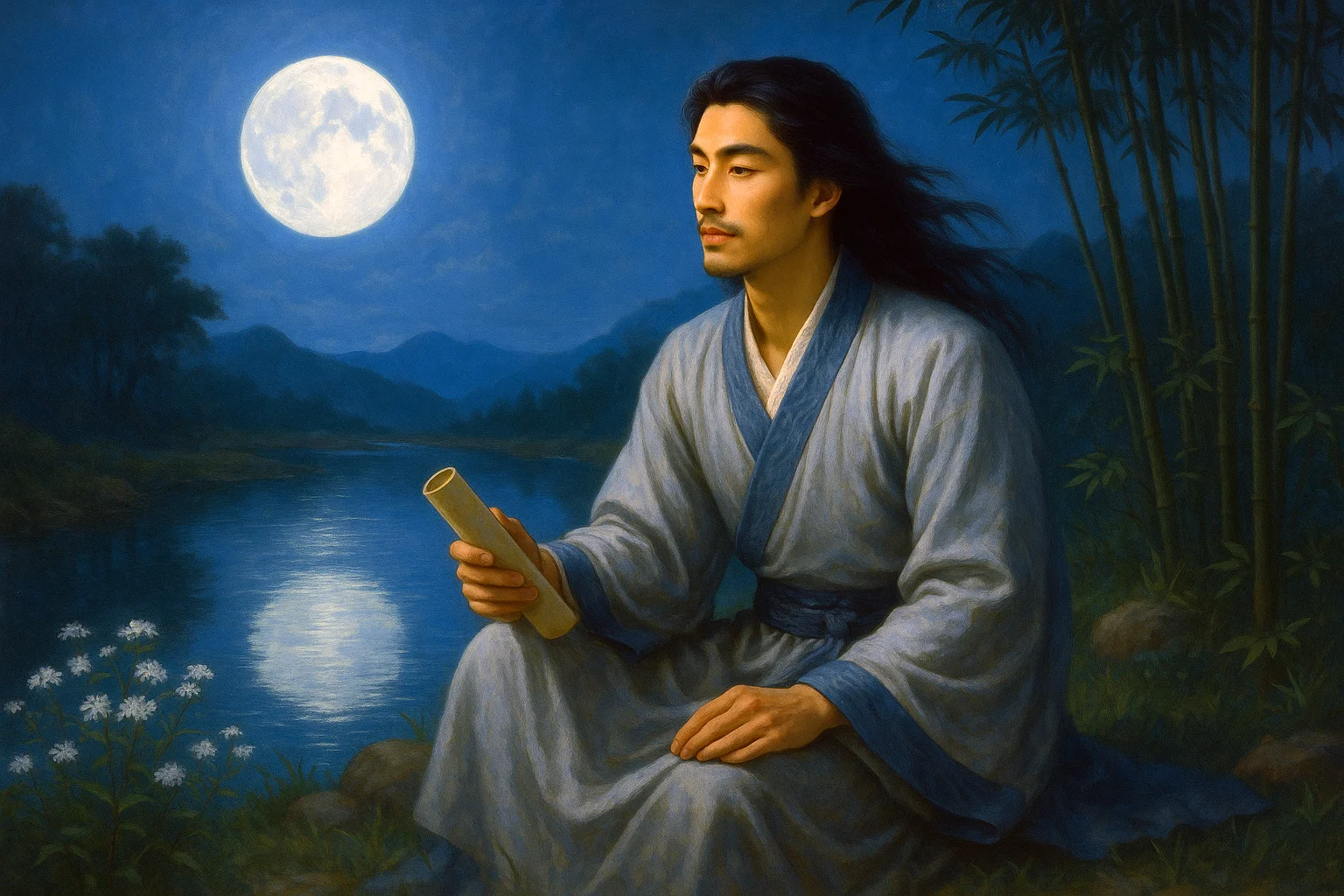
Zeng Gong (曾巩, 1019 - 1083), a native of Nanfeng in Jiangxi province, stands among the illustrious "Eight Great Masters of Tang-Song Prose." His writings distinguished themselves through an elegant classical balance, celebrated for their rigorous argumentation and refined literary craftsmanship. While his poetry embraced an artless subtlety, his prose achieved what critics hailed as "the very essence of purity" - an achievement that, though perhaps less dazzling than his contemporaries like Su Shi or Wang Anshi, earned him posthumous reverence as the founding master of the "Nanfeng Literary School."








